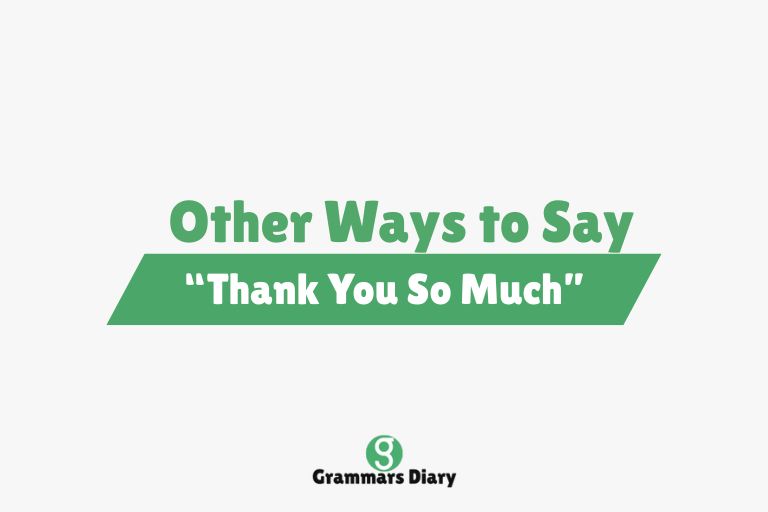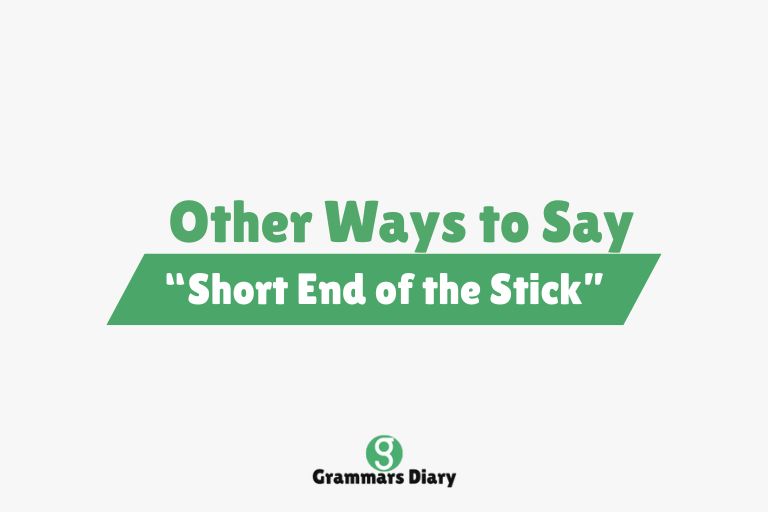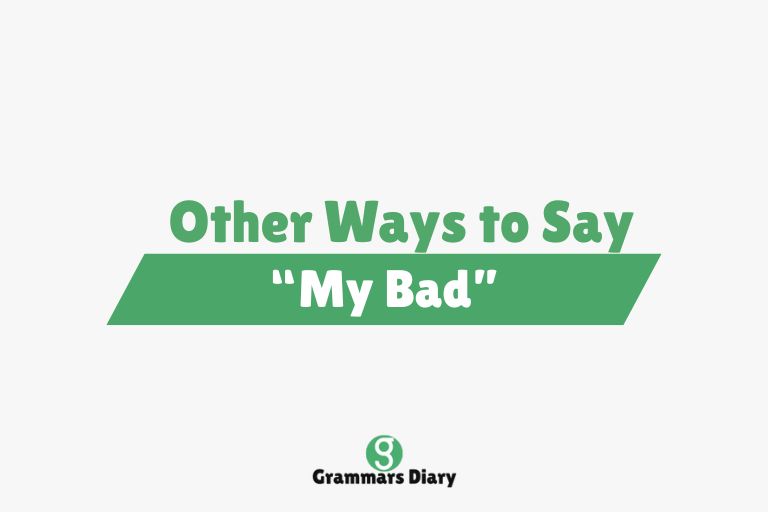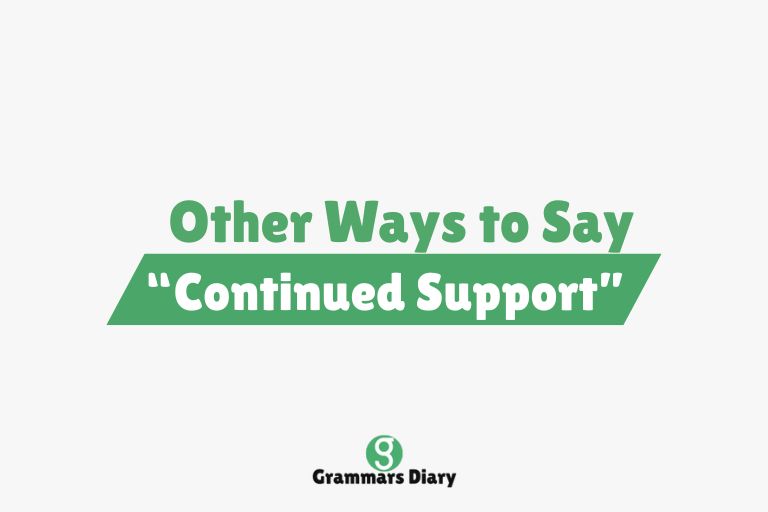25 Other Ways to Say “You’re Welcome”
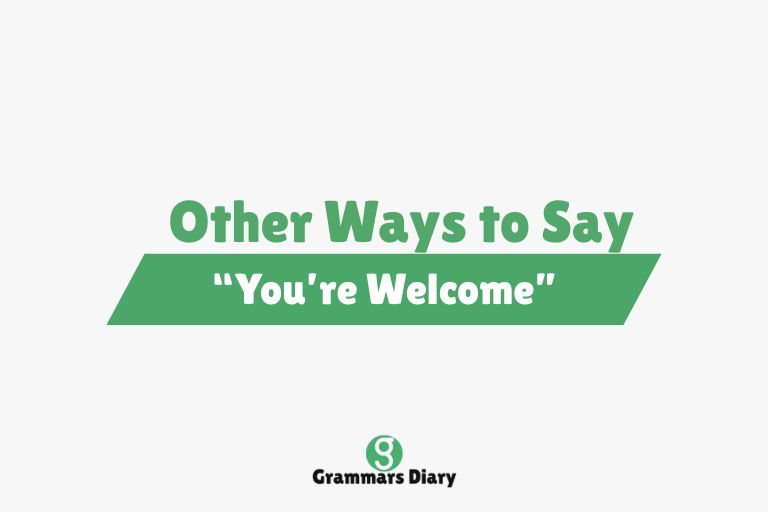
“You’re welcome” is a polite and widely recognized response to someone’s expression of gratitude, serving as a customary way to acknowledge appreciation without diminishing the sentiment behind the thank-you, and while it is perfectly acceptable in almost all settings, repeating it too often or in situations that call for more nuance can sometimes sound mechanical or impersonal.
Fortunately, the English language is rich with alternative ways to convey a similar sentiment, many of which offer slight shifts in tone, formality, or warmth, allowing you to better match your response to the context—whether you’re speaking with friends, colleagues, customers, or strangers in need of assistance.
This guide will explore twenty-five different expressions that can be used instead of saying “you’re welcome,” offering practical examples, explanations, and appropriate usage tips to help you broaden your vocabulary and sound more thoughtful, confident, or natural in a variety of situations.
Other Ways to Say “You’re Welcome”
1. My pleasure
Example: “Thanks for helping me move.” — “My pleasure.”
Meaning: This response suggests that not only was the help freely given, but it also brought you personal satisfaction or joy.
Usage: Best suited for formal or polite contexts, such as customer service, business meetings, or respectful conversations.
2. No problem
Example: “Thanks for the ride.” — “No problem.”
Meaning: It reassures the speaker that their request or favor was not an inconvenience at all.
Usage: Very common in casual settings and among friends, but may sound too informal for formal or professional contexts.
3. Don’t mention it
Example: “Thanks again for your advice.” — “Don’t mention it.”
Meaning: A modest and slightly old-fashioned way to dismiss thanks, suggesting the favor was minor or unworthy of gratitude.
Usage: Works well in both polite social situations and formal interactions when you wish to appear humble or gracious.
4. Anytime
Example: “I really appreciate you covering for me.” — “Anytime.”
Meaning: Indicates a willingness to repeat the favor in the future without hesitation.
Usage: Friendly and supportive, often used to maintain or build rapport in both personal and semi-professional relationships.
5. Of course
Example: “Thanks for letting me borrow your notes.” — “Of course.”
Meaning: Suggests that the help provided was natural or expected, reinforcing a sense of generosity or closeness.
Usage: Works in both casual and more respectful settings, depending on tone of voice and delivery.
6. You got it
Example: “Thanks for sending that report.” — “You got it.”
Meaning: A laid-back way to affirm the favor, implying eagerness or readiness to assist.
Usage: Mostly informal and conversational, ideal for peers, teammates, or friends.
7. It was nothing
Example: “I’m so grateful you stayed late to help.” — “It was nothing.”
Meaning: Downplays the effort involved to make the other person feel at ease about asking for help.
Usage: Polite and humble, this phrase is versatile but especially effective when you want to deflect praise.
8. Not at all
Example: “Thanks for waiting for me.” — “Not at all.”
Meaning: Another humble, slightly formal expression that minimizes the favor you’ve done.
Usage: Often used in British English and polite conversations where maintaining a courteous tone is important.
9. Happy to help
Example: “Thanks for your input on the project.” — “Happy to help.”
Meaning: Shows not just willingness but also a positive attitude toward being of service.
Usage: Common in customer service, team environments, or whenever you want to sound kind and approachable.
10. Sure thing
Example: “Thanks for fixing that error.” — “Sure thing.”
Meaning: A casual and cheerful affirmation of your willingness to help.
Usage: Friendly and relaxed, most appropriate for informal conversations.
11. Absolutely
Example: “Thanks for doing that favor.” — “Absolutely.”
Meaning: Strongly affirms that you were glad to help and had no hesitation about doing so.
Usage: Can be used in both formal and informal contexts, depending on tone and delivery.
12. I got you
Example: “Thanks for watching my dog.” — “I got you.”
Meaning: Informal and familiar, this phrase expresses loyalty and readiness to help.
Usage: Best reserved for close friends or casual settings where slang is acceptable.
13. No worries
Example: “Thanks for replying so quickly.” — “No worries.”
Meaning: Reassures the person that they haven’t caused any trouble or inconvenience.
Usage: Very popular in casual speech, especially in Australian and British English.
14. You bet
Example: “Thanks for being here today.” — “You bet.”
Meaning: An enthusiastic and informal way of saying you’re welcome.
Usage: Friendly and relaxed, common in American English and suitable among peers or close acquaintances.
15. It’s all good
Example: “Thanks for your patience.” — “It’s all good.”
Meaning: A very relaxed phrase that not only accepts the thanks but also suggests no negative feelings about the situation.
Usage: Very casual, often used in friendly or laid-back conversations.
16. Not a problem
Example: “Thanks for running that errand.” — “Not a problem.”
Meaning: Reassures the speaker that you were glad to do the favor and that it didn’t burden you.
Usage: Very common in both casual and polite settings; slightly more modern than “don’t mention it.”
17. No trouble at all
Example: “Thanks for coming in early.” — “No trouble at all.”
Meaning: A thoughtful and reassuring way to say that your action was not an inconvenience in any way.
Usage: Works well in courteous or customer service interactions, especially to put someone at ease.
18. I’m here for you
Example: “Thanks for listening to me.” — “I’m here for you.”
Meaning: Conveys emotional support and availability, extending beyond a one-time favor.
Usage: Best suited for personal and emotionally supportive conversations.
19. That’s what friends are for
Example: “Thanks for helping me move this weekend.” — “That’s what friends are for.”
Meaning: Reinforces friendship by suggesting that helping is just part of the relationship.
Usage: Friendly and heartfelt, used only in personal relationships.
20. I got your back
Example: “Thanks for speaking up for me.” — “I got your back.”
Meaning: Expresses loyalty and protection, often used to show dependable friendship or alliance.
Usage: Casual and reassuring, especially common among peers or teammates.
21. With pleasure
Example: “Thanks for handling that.” — “With pleasure.”
Meaning: A refined and courteous way to indicate that the task brought you satisfaction.
Usage: Formal and polished, perfect for business, client service, or polite conversations.
22. Always glad to help
Example: “Thanks again for your assistance.” — “Always glad to help.”
Meaning: Suggests a consistent readiness to offer help, reinforcing kindness and generosity.
Usage: Professional and warm, ideal in client or team communication.
23. I’m happy you asked
Example: “Thanks for helping me understand that.” — “I’m happy you asked.”
Meaning: Indicates openness and encouragement, making the other person feel comfortable for asking.
Usage: Often used by teachers, mentors, or anyone providing guidance or information.
24. Anything for you
Example: “Thanks for all your support.” — “Anything for you.”
Meaning: Conveys deep affection or commitment, signaling that you’d gladly help again, no matter what.
Usage: Very personal and intimate, often used in close relationships or romantic contexts.
25. It’s nothing, really
Example: “Thanks for picking that up for me.” — “It’s nothing, really.”
Meaning: A humble way of dismissing the effort to make the other person feel more comfortable.
Usage: Works in both friendly and polite conversations, often used to reduce any feeling of indebtedness.
When to Use Different “You’re Welcome” Alternatives
In Formal or Professional Settings
When you’re interacting with clients, coworkers, or supervisors, it’s best to use expressions that maintain professionalism and clarity, such as “My pleasure,” “With pleasure,” or “Absolutely,” as these options express a respectful attitude while reinforcing your reliability or willingness to contribute without sounding overly casual.
In Casual or Friendly Conversations
In informal interactions with friends or peers, you’re free to use more relaxed expressions like “No problem,” “You got it,” or “Sure thing,” which help keep the mood friendly and familiar without sounding stiff or overly formal.
In Customer Service or Business Interactions
Customer service representatives or business professionals should aim for warmth and professionalism, so phrases like “Happy to help,” “Always glad to help,” or “My pleasure” are perfect for reinforcing a helpful and welcoming tone while maintaining professional standards and customer trust.
Conclusion
Saying “you’re welcome” is a kind and simple gesture, but with so many alternative ways to express the same sentiment, you can tailor your response to better match the mood, relationship, or situation you’re in—whether it’s a casual favor for a friend or a professional exchange in the workplace.
By using the right expression, you not only convey gratitude more meaningfully but also deepen connections, show emotional intelligence, and reinforce trust in both personal and professional relationships.
So the next time someone says “thank you,” consider choosing a response that aligns with how you want to be perceived—friendly, supportive, respectful, or effortlessly confident.
FAQs
What does “you’re welcome” really mean?
It’s a polite way to acknowledge someone’s thanks, often signaling that the help was freely given and no repayment is necessary.
Is it rude to say “no problem” instead of “you’re welcome”?
Not at all—while some may prefer more traditional phrases, “no problem” is widely accepted in casual contexts. It’s best to avoid it in formal settings or with people who may expect more conventional politeness.
What’s the most professional way to say “you’re welcome”?
Phrases like “My pleasure,” “With pleasure,” or “Happy to help” are excellent professional alternatives that express politeness and commitment.
Are there cultural differences in how “you’re welcome” is expressed?
Yes, some cultures prefer expressions that deflect praise or minimize the effort, while others may emphasize service or support. It’s always a good idea to consider your audience and setting.


